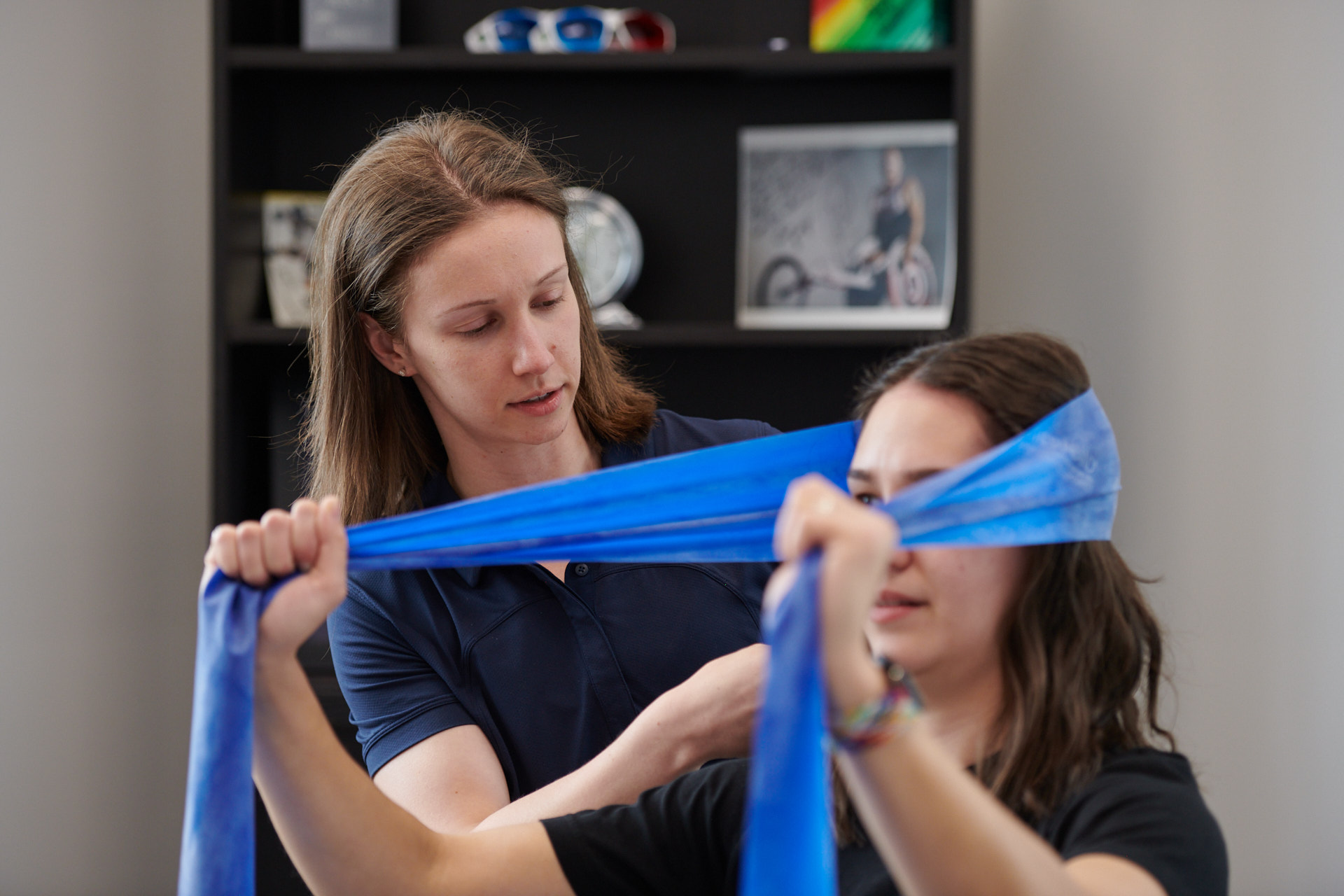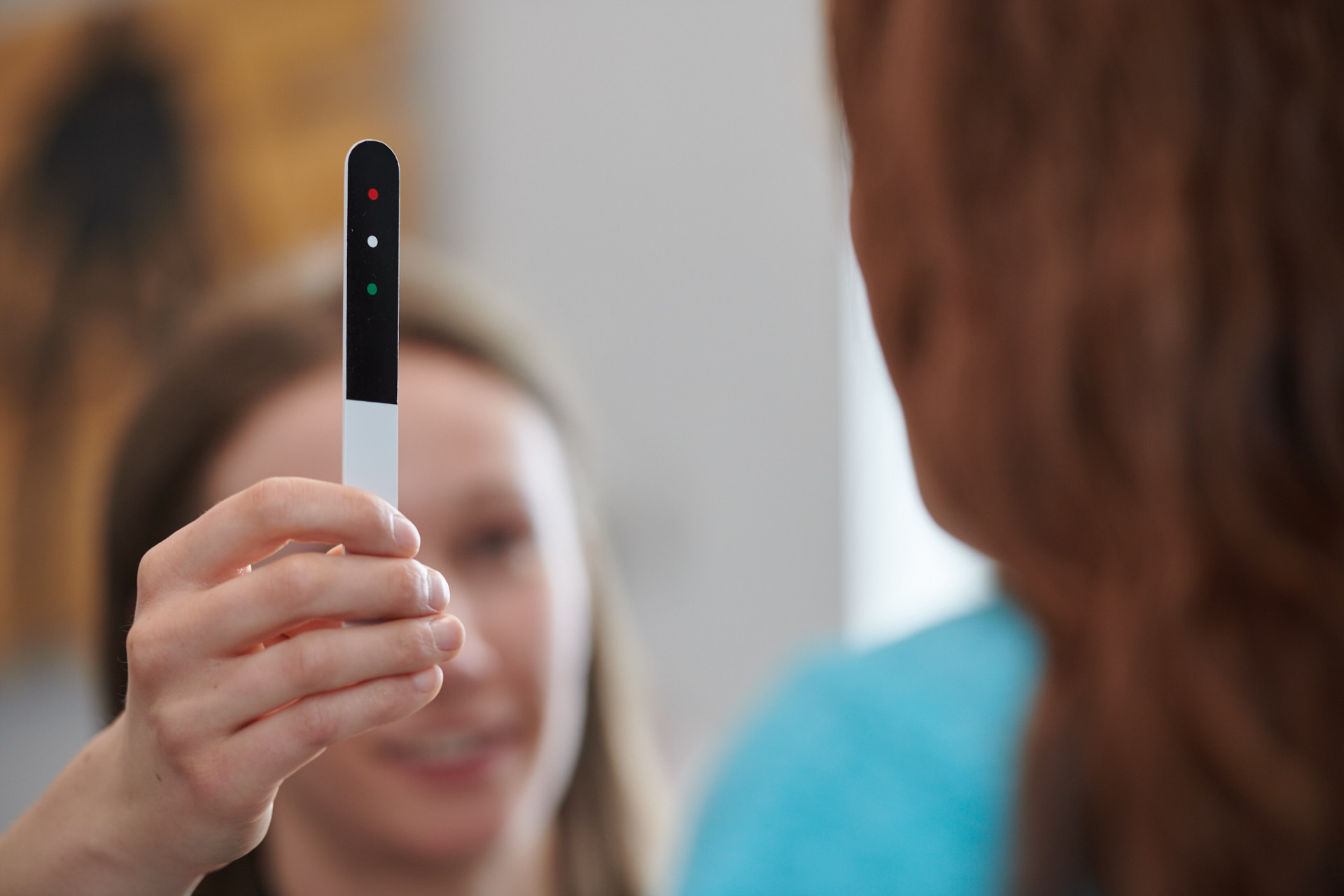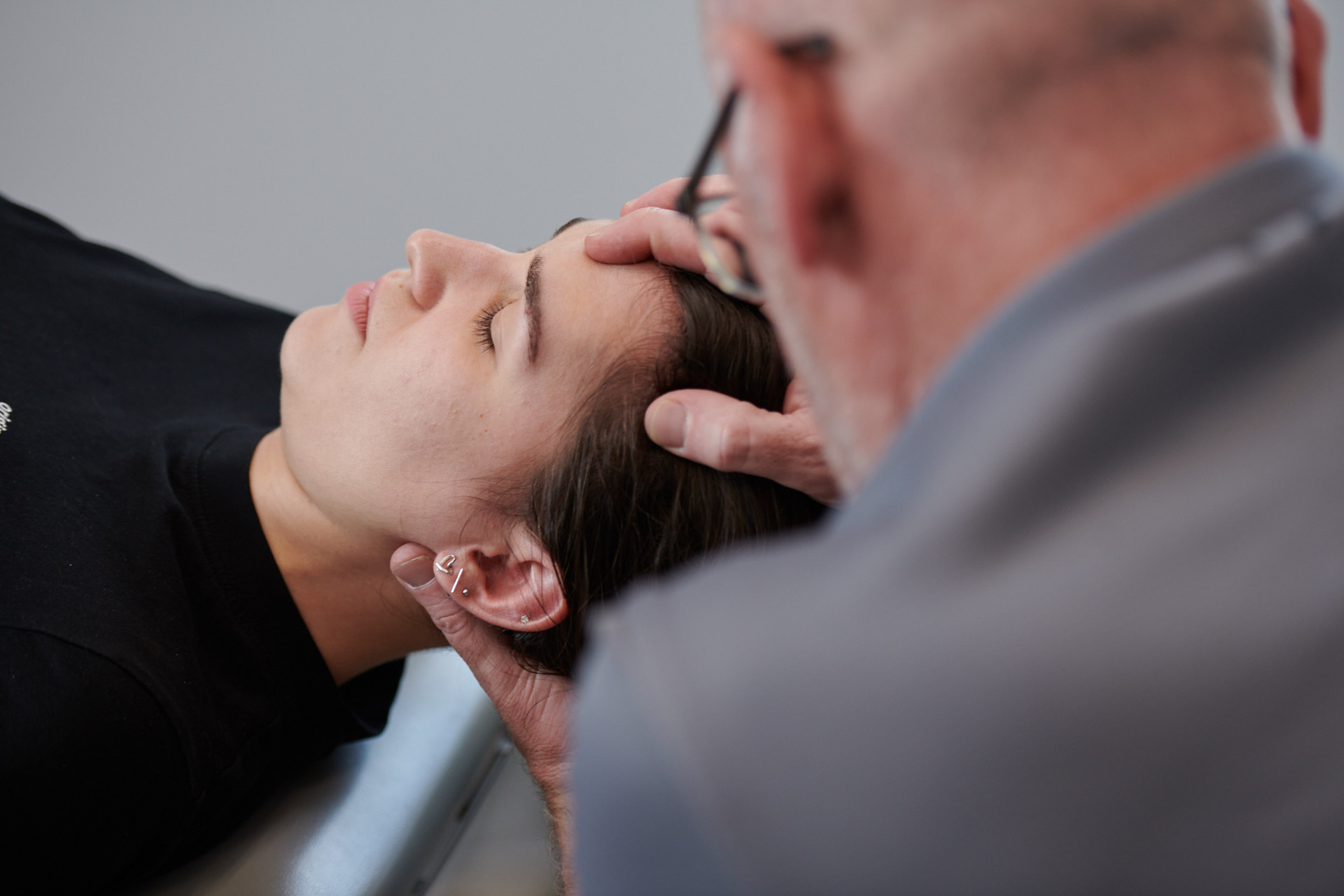Headaches are a common complaint after a concussion, but when do they become a sign of something more serious? Persistent Post-concussion symptoms (PPCS) can involve a range of lingering symptoms, including persistent headaches that can significantly impact your daily life. This comprehensive guide will walk you through the complexities of post-concussion headaches, from understanding the different types and their root causes to exploring effective management strategies. Whether you’re dealing with tension-type headaches, migraines, or cervicogenic headaches, we’ll provide you with the knowledge and tools to navigate your recovery journey. We’ll also discuss when to seek professional help and how to develop a personalized treatment plan.
Key Takeaways
- Recognize the different types of post-concussion headaches: Understanding whether your headaches are tension-type, migraine-like, or cervicogenic helps you and your healthcare provider develop a targeted treatment plan.
- Manage headaches with a combination of strategies: Explore options like lifestyle changes, physical therapy, CBT, and medication to find what works best for you. A combined approach often yields the most effective results.
- Seek professional support and connect with others: Healthcare providers offer personalized guidance, and connecting with a support network provides emotional support and practical advice for navigating the challenges of post-concussion recovery.
What is PPCS?
Persistent Post Concussion Symptoms – (PPCS) describes lingering symptoms after a concussion. It can affect people for weeks, months, or even years after the initial injury. Experiences with PPCS vary, but common symptoms fall into three main categories:
Defining PPCS
PPCS can be physical, such as headaches, dizziness, and sleep disturbances. They can also be cognitive, involving difficulty with memory, concentration, or processing information. Finally, PPCS can manifest as behavioral changes, including irritability and changes in tolerance for noise, light, and busy environments. These symptoms impact daily life, making it challenging to return to work, school, or regular activities. You can learn more about managing these challenges in our audio guide on concussion recovery.
The Link Between Concussions and Headaches
Headaches are among the most prevalent and persistent symptoms of PPCS. Known as post-traumatic headaches (PTH), they can take various forms, including migraine, tension-type headaches, and cervicogenic headaches (head pain originating in the neck). Understanding the different types of headaches is crucial for effective management. Our article on memory problems after a head injury also addresses the cognitive challenges often associated with PPCS.
Debunking PPCS and Headache Myths
Many misconceptions surround concussions and PPCS. Some believe that if symptoms don’t appear immediately, the injury isn’t serious. This can prevent people from seeking timely medical attention and receiving a proper diagnosis. It’s important to remember that PPCS can develop even after seemingly “mild” concussions. For immediate steps and strategies after a concussion, refer to our resource. Additionally, understanding the specific type of post-traumatic headache is essential for targeted treatment. Don’t hesitate to seek professional help if you’re experiencing persistent symptoms after a head injury. You can find inspiring recovery stories on our website.
8 Types of Post-Concussion Headaches
Experiencing headaches after a concussion is common. Understanding the different types can help you better communicate your symptoms to your healthcare provider and find the right treatment approach. For a comprehensive guide on memory problems after head injury, check out Concussion Hub’s resource.
Tension-Type Headaches
Tension-type headaches are among the most prevalent headache types after a brain injury, both immediately after a concussion and with PPCS. These headaches often feel like a tight band or pressure around your head.
Migraine Headaches
Migraines are another common post-concussion headache. They can be significantly debilitating, often involving throbbing pain, sensitivity to light and sound, and sometimes nausea or vomiting. Concussion Alliance offers helpful resources on headaches and concussions.
Cervicogenic Headaches
Cervicogenic headaches originate in the cervical spine (neck). They often present as pain that starts in the neck and radiates up to the head. You might also experience neck stiffness and limited range of motion.
Post-Traumatic Headaches
Post-traumatic headaches (PTH) are recurring headaches directly attributed to a concussion. They can vary in type and intensity, sometimes resembling tension headaches or migraines. The American Migraine Foundation provides further information on PTH.
Chronic Daily Headaches
As the name suggests, chronic daily headaches occur frequently, sometimes 15 days or more per month. These can develop after a concussion and may persist for an extended period.
Medication Overuse Headaches
Medication overuse headaches, also known as rebound headaches, can develop from frequent use of pain medication. Ironically, taking medication to relieve headaches can lead to more frequent headaches in some cases.
Neuritic/Neuralgic Headaches
Neuritic or neuralgic headaches are characterized by sharp, stabbing pain along a nerve’s path. These headaches can be a particularly challenging subtype of post-traumatic headache.
TMJ-Related Headaches
Problems with the temporomandibular joint (TMJ), which connects your jaw to your skull, can also cause headaches. These are often associated with jaw pain, clicking, or difficulty chewing. Cognitive FX provides additional information on post-concussion headaches.
How Concussions Cause Headaches
Experiencing headaches after a concussion is common. Understanding the underlying causes can empower you to seek appropriate treatment and manage your symptoms effectively. Several factors contribute to post-concussion headaches, often interacting in complex ways.
Neurological Changes
A concussion disrupts normal brain function. As Cognitive FX explains, these disruptions can lead to recurring headaches tied to changes in the brain itself. Think of it like a network interruption: the brain’s communication pathways get scrambled, leading to pain signals. These changes can affect how the brain processes pain and regulates other bodily functions, contributing to persistent headaches. For more information on managing headaches after a head injury, read our article Conquering Memory Problems After a Head Injury.
Muscle Tension and Inflammation
Muscle tension and inflammation also play a significant role in post-concussion headaches. The impact of a concussion can cause muscle strain in the neck and head, leading to tension headaches. Inflammation, a natural bodily response to injury, can further exacerbate pain. As Cornerstone Physiotherapy points out, PPCS can result in long-term symptoms that limit daily activities. Our introductory audio guide on navigating concussion recovery offers additional insights into managing these symptoms.
Cognitive and Emotional Factors
The cognitive and emotional effects of a concussion can also contribute to headaches. Stress, anxiety, and difficulty concentrating are common after a concussion and can trigger or worsen headaches. Cognitive Behavioral Therapy (CBT) can be a valuable tool in managing these factors. Neurolaunch describes CBT as a “software update” for the brain, helping individuals cope with the challenges of PPCS. For practical advice on early steps and strategies after a concussion, see our resource, What should I do after a concussion. Understanding the interplay of these factors is crucial for developing a comprehensive treatment plan.
Recognize and Manage Headache Patterns
Understanding your headache patterns is the first step toward effective management. This involves identifying triggers, tracking frequency and intensity, and implementing techniques to find relief. By taking a proactive approach, you can regain control and minimize the impact of headaches on your daily life.
Identify Triggers and Symptoms
Post-concussion headaches can present in various ways, mimicking other headache types like migraines or tension headaches. The pain might be localized, affecting your head, shoulders, or neck. Identifying your specific symptoms is crucial. Do you experience throbbing pain, a dull ache, or sharp, stabbing sensations? Pinpointing the type of pain helps determine the underlying cause and guides treatment strategies. Pay attention to potential triggers, such as stress, certain foods, bright lights, or loud noises. Keeping a headache journal can be invaluable for recognizing patterns and connections between your activities and headache onset. This awareness empowers you to avoid triggers and manage your symptoms proactively. For additional support and guidance on managing post-concussion symptoms, explore our introductory audio guide on navigating concussion recovery.
Track Frequency and Intensity
Headaches are a common symptom after a concussion, sometimes new or a worsening of pre-existing headaches. While most people recover quickly, tracking the frequency and intensity of your headaches provides valuable data for your healthcare team. Note how often your headaches occur, how long they last, and the level of pain on a scale of 1 to 10. This information helps determine if your headaches are improving or worsening over time. Consistent tracking allows you to see trends and make informed decisions about your recovery plan. Remember, even subtle changes in headache patterns can be significant. Learn more about decoding memory problems after a concussion in our detailed article.
Implement Effective Management Techniques
Managing post-concussion headaches often involves a multi-faceted approach. Start with foundational lifestyle adjustments, including a healthy diet, proper hydration, regular exercise (speak with your healthcare provider about the right type and amount for your condition), and sufficient sleep. These changes can significantly influence headache frequency and intensity. Cognitive Behavioral Therapy (CBT) offers tools to manage pain by changing thought patterns and behaviors. It helps you understand the connection between your thoughts, feelings, and physical sensations, empowering you to cope with headache pain more effectively. For further insights into concussion recovery, read personal stories and learn from others’ experiences. Discuss CBT and other management strategies with your healthcare provider to develop a personalized plan that addresses your specific needs.
Find Headache Relief Without Medication
Many effective strategies can help manage post-concussion headaches without relying on medication. These approaches often address the root causes of headaches, offering long-term relief and improving overall well-being. Exploring these options can empower you to take control of your recovery.
Cognitive Behavioral Therapy (CBT)
CBT helps reframe negative thought patterns and develop coping mechanisms for pain and stress. Think of it as retraining your brain to respond to pain signals more effectively. This can be particularly helpful for managing the emotional and psychological aspects of PPCS, which can exacerbate headaches. CBT provides tools to manage stress, anxiety, and frustration, reducing their impact on headache frequency and intensity. Learn more about the early steps and strategies after a concussion from our expert advice.
Physical Therapy and Exercise
Physical therapy addresses physical factors contributing to headaches, such as neck pain and muscle tension. A personalized exercise program can improve strength, flexibility, and posture, reducing strain on the head and neck. Gentle aerobic exercise, like walking or swimming, can also increase blood flow and release endorphins, which have natural pain-relieving properties.
Relaxation Techniques and Stress Management
Stress is a common headache trigger, and relaxation techniques can help manage stress levels and reduce headache frequency. Practices like deep breathing exercises, meditation, and yoga can promote relaxation and reduce muscle tension. Mindfulness techniques can also help you become more aware of your body’s signals, allowing you to identify and address headache triggers early on. For those experiencing persistent post-concussion symptoms, cognitive strategy training can be beneficial for addressing cognitive communication challenges.
Hydration and Dietary Considerations
Proper hydration and a balanced diet are essential for overall health and can also influence headache patterns. Dehydration can trigger or worsen headaches, so make sure you’re drinking enough water throughout the day. Certain foods and drinks, such as those containing caffeine or artificial sweeteners, can also trigger headaches in some individuals. Paying attention to your diet and identifying potential triggers can help you make informed choices that support your recovery. Consider incorporating basic recommendations like diet, hydration, exercise, and sleep as part of your treatment plan. You can also explore personal stories of recovery on our site.
Prevent Headaches: Lifestyle Changes
Making simple lifestyle adjustments can significantly impact the frequency and intensity of post-concussion headaches. These changes support your brain’s healing and overall well-being.
Sleep Hygiene and Rest
Prioritizing sleep is crucial after a concussion. Adequate rest allows your brain to heal and can reduce headache symptoms. Aim for a consistent sleep schedule, even on weekends, to regulate your body’s natural sleep-wake cycle. Create a relaxing bedtime routine to signal to your body that it’s time to wind down. This could include a warm bath, reading, or listening to calming music. Make sure your bedroom is dark, quiet, and cool to promote restful sleep. If you’re struggling with sleep, consider talking to your doctor. The Concussion Legacy Foundation offers helpful resources for coping with post-concussion symptoms, including advice on sleep hygiene.
Gradually Return to Activities
Easing back into your daily routine is essential after a concussion. Jumping back into activities too quickly can worsen headache symptoms and prolong recovery. Start with light activities and gradually increase the duration and intensity as tolerated. Pay attention to your body’s signals and rest when needed. If an activity triggers a headache, scale back or stop altogether. Concussion Hub offers a helpful guide on early steps and strategies after concussion.
Reduce Stress
Stress can exacerbate post-concussion headaches. Finding healthy ways to manage stress is crucial for recovery. Cognitive Behavioral Therapy (CBT) can be particularly helpful for managing stress after a concussion. CBT teaches you how to identify and modify negative thought patterns and behaviors that contribute to stress. Neurolaunch provides further information on post-concussion therapies like CBT. Incorporating relaxation techniques into your daily routine can also make a difference. Try deep breathing exercises, meditation, or yoga to calm your mind and body. Remember, managing stress is an ongoing process, so be patient with yourself and celebrate small victories.
Manage Headaches with Medication
Dealing with persistent headaches after a concussion can be incredibly frustrating. While lifestyle changes and strategies like those discussed in our Headache Prevention section can be helpful, sometimes medication is necessary for effective pain relief. Let’s explore your options for managing post-concussion headaches with medication.
Over-the-Counter Options
For mild to moderate headaches, over-the-counter (OTC) pain relievers can offer relief. Acetaminophen (Tylenol) is a common choice, and nonsteroidal anti-inflammatory drugs (NSAIDs) like ibuprofen (Advil, Motrin) and naproxen (Aleve) can also help reduce pain and inflammation. These medications are often a good starting point, and they’re readily available. Remember to follow the dosage instructions on the label. If you find yourself frequently relying on OTC pain relievers, it’s wise to discuss this with your doctor.
Prescription Medications
If over-the-counter options aren’t providing adequate relief, your Medical Doctor might suggest prescription medications. For migraine-like headaches, medications often used for migraine suffers can be effective (even if you didn’t have migraine headaches before your concussion). Muscle relaxants might be prescribed if muscle tension contributes to your headaches. In some cases, antidepressants can help manage chronic pain, even if you aren’t experiencing depression. Working closely with your doctor is crucial to find the right prescription medication for your specific needs and medical history. They can assess your symptoms and determine the most appropriate course of action.
Potential Risks and Side Effects
While medication can be beneficial in managing headaches, it’s essential to be aware of potential risks and side effects. Overusing pain relievers can lead to rebound headaches, where the pain returns as the medication wears off, creating a difficult cycle to break. Prescription medications can also have side effects, such as drowsiness, dizziness, or gastrointestinal problems. Always discuss these potential risks with your doctor or pharmacist to ensure your treatment plan is both safe and effective. Open communication with your doctor will help you make informed decisions about your care.
Get Professional Care
Experiencing headaches after a concussion can be concerning, but remember, effective treatments are available. Seeking professional guidance is key to managing your recovery and finding relief.
When to See a Doctor
Post-concussion headaches can mimic other headache types, like tension headaches or migraines. The pain might be mild or severe, constant or intermittent. Any headache that persists after a concussive episode warrants a medical evaluation. Don’t hesitate to seek professional advice if your headaches are interfering with your daily life or causing you concern. For immediate steps and strategies after a concussion, visit Concussion Hub.
Work with Healthcare Providers
Managing post-concussion headaches often requires a collaborative approach involving various healthcare professionals. This might include a physician, neurologist, physical therapist, chiropractor or occupational therapist. Working with a team can provide a comprehensive approach to address the multifaceted nature of PPCS. Cognitive recovery strategies can be particularly helpful in managing the cognitive-communication symptoms that often accompany persistent post-concussion syndrome. Concussion Hub’s audio guide offers a helpful introduction to the recovery process.
Develop a Personalized Treatment Plan
Your healthcare provider will work with you to develop a personalized treatment plan tailored to your specific needs and symptoms. This plan will likely involve a combination of strategies, including medication management, lifestyle adjustments, and therapies. Treating post-concussion headaches often starts with basic recommendations like dietary changes, proper hydration, regular exercise, and sufficient sleep. For further information on memory problems after concussion, explore this Concussion Hub resource. Finding the right approach may take time and requires open communication with your healthcare team. This personal story on Concussion Hub offers valuable insights into the recovery journey.
Manage Headaches Long-Term
Living with post-concussion headaches can feel like a marathon, not a sprint. While finding immediate relief is crucial, developing strategies for long-term management is equally important for regaining control of your life. This involves self-advocacy, building a strong support system, and learning to adapt as your symptoms change.
Self-Advocacy and Education
PPCS often presents as an invisible disability, leading to misunderstandings from others. Educating yourself about PPCS and its associated headaches is the first step in effectively advocating for your needs. Learn about the different types of headaches, their potential causes, and available treatments. This knowledge empowers you to communicate your experiences to healthcare providers, family, friends, and employers. The more informed you are, the better equipped you are to seek appropriate care and support. Medbridge offers helpful strategies for cognitive recovery after a concussion. Remember, managing PPCS requires a multidisciplinary approach, so understanding your condition is key to finding the right combination of medical interventions and therapies. The American Headache Society offers valuable information on post-traumatic headaches and dispels common myths surrounding concussions.
Build a Support Network
Recovering from a concussion and managing ongoing headaches can be isolating. Building a support network is essential for your emotional well-being and overall recovery. Connect with others who understand your experience through support groups or online communities. Sharing your challenges and successes with people who have “been there” can provide comfort, validation, and practical advice. The Concussion Legacy Foundation offers resources for coping with PPCS, including ways to make daily life more manageable. Don’t hesitate to lean on family and friends for emotional support. If you’re struggling emotionally, consider seeking professional help from a therapist or counselor. Therapy can empower you to regain control of your life after a concussion.
Adapt to Changing Symptoms
Post-concussion headaches can fluctuate in frequency, intensity, and type. What works for managing your headaches one week might not be as effective the next. Learning to adapt to these changes is crucial for long-term management. Keep a headache journal to track your symptoms, identify potential triggers, and monitor the effectiveness of different treatments. This information can help you and your healthcare team adjust your treatment plan as needed. Cornerstone Physiotherapy emphasizes that PPCS can significantly impact daily tasks and activities, so adapting to changing symptoms is essential. Understanding that your headaches might shift between feeling like migraines or tension headaches, as described by the Mayo Clinic, can help you anticipate and manage these changes. Remember, recovery is a process, and flexibility is key to navigating the ups and downs of post-concussion headaches.
Related Articles
- Managing Symptoms Archives – Concussion Hub
- Concussion Recovery: Why Do Some Symptoms Linger? – Concussion Hub
- What should I do after a concussion? – Concussion Hub
- Post-Concussion Archives – Concussion Hub
- Managing Sleep Difficulties After a Concussion – Concussion Hub
Frequently Asked Questions
If I still have headaches weeks after my concussion, does that mean I have PPCS?
Not necessarily. While lingering headaches are a common symptom of PPCS, many factors can contribute to headaches after a head injury. It’s important to consult with a healthcare professional for a proper diagnosis. They can evaluate your specific symptoms and determine the underlying cause of your headaches.
Are post-concussion headaches always severe?
No, post-concussion headaches vary in intensity. Some people experience mild, dull aches, while others have severe, debilitating pain. The type of headache can also vary, ranging from tension-type headaches to migraines. It’s crucial to describe your specific symptoms to your doctor to ensure appropriate treatment.
Can I treat post-concussion headaches without medication?
Yes, many non-medication strategies can effectively manage post-concussion headaches. These include lifestyle changes like improving sleep hygiene, managing stress through relaxation techniques, and engaging in regular, gentle exercise. Therapies like cognitive behavioral therapy (CBT) and physical therapy, chiropractic or massage can also be beneficial.
What type of doctor should I see for post-concussion headaches?
Your primary care physician is a good starting point. They can assess your symptoms and refer you to specialists if needed, such as a neurologist, physiatrist, or pain management specialist. Depending on your symptoms, you might also benefit from seeing a physical therapist or occupational therapist trained in concussion management.
How long do post-concussion headaches typically last?
The duration of post-concussion headaches varies significantly. Some people experience relief within a few weeks, while others have symptoms that persist for months or even years. Seeking early intervention and following a personalized treatment plan can often improve recovery time and reduce the likelihood of long-term headaches.






